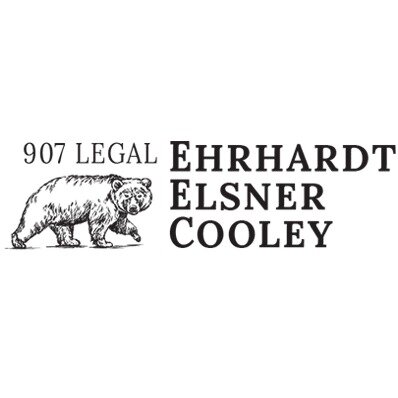Best Defamation Lawyers in Alaska
Share your needs with us, get contacted by law firms.
Free. Takes 2 min.
Or refine your search by selecting a city:
List of the best lawyers in Alaska, United States
About Defamation Law in Alaska, United States
Defamation in Alaska refers to a false statement made about a person that injures their reputation. This could occur through spoken words (slander) or written forms (libel). The core of defamation law is the protection of individual reputation against unjustified harm. In Alaska, as elsewhere in the United States, individuals have the right to seek legal remedies if false statements cause them harm. However, defamation law is complex, especially as it relates to freedom of speech under the First Amendment. Understanding your rights and obligations under Alaska law is crucial if you believe you have been defamed or are facing a defamation claim.
Why You May Need a Lawyer
If you believe someone has damaged your reputation through false statements, a lawyer can help you determine if you have a valid defamation claim. Attorneys are important if you:
- Have suffered reputational or financial harm due to false statements
- Are a business owner whose enterprise has been negatively affected by defamatory reviews or publications
- Have been accused of making defamatory statements and need to defend yourself
- Are a public figure, where additional legal standards may apply
- Seek removal of false information from online sources or social media
- Face the risk of criminal charges or civil lawsuits as a result of statements you made
Legal professionals can help you navigate Alaska’s laws, gather evidence, evaluate damages, and represent you in court or settlements.
Local Laws Overview
Alaska follows the general principles of U.S. defamation law, but there are unique local nuances:
- Elements of Defamation: A plaintiff in Alaska must prove the statement was false, made to a third party, and caused damage. Mere insults or opinions generally do not qualify as defamation.
- Actual Malice Standard: If the plaintiff is a public figure, they must also prove the statement was made with actual malice - that is, with knowledge it was false or reckless disregard for the truth.
- Statute of Limitations: In Alaska, you typically have two years from the date the defamatory statement was made to file a lawsuit.
- Privileges and Defenses: Alaska law recognizes defenses such as truth, privilege (for example, statements made in court), opinion, and consent.
- Damages: Plaintiffs may recover actual, general, and sometimes punitive damages, depending on the nature and extent of harm proven.
Local nuances, including court interpretations and application of federal constitutional principles, make consulting with an Alaska-based legal professional very important.
Frequently Asked Questions
What is the difference between slander and libel in Alaska?
Slander refers to spoken defamation, while libel refers to written or published defamation. The legal standards to prove harm are similar in both cases.
Is opinion considered defamation in Alaska?
No, pure opinions are generally not actionable as defamation. Only statements of fact that are false and cause harm can be defamatory.
Can a business sue for defamation in Alaska?
Yes, businesses can sue if false statements harm their reputation or business interests. The business must prove the statements were false, communicated to others, and caused actual harm.
What is actual malice, and when does it apply?
Actual malice means making a statement knowing it was false or with reckless disregard for the truth. This higher standard applies if the person allegedly defamed is a public figure.
How long do I have to file a defamation lawsuit in Alaska?
In most cases, you must file within two years of the alleged defamatory statement being made.
Can I remove defamatory posts from the internet?
If false and damaging material is published online, you may have legal recourse to request removal. An attorney can help with takedown requests or lawsuits if necessary.
What defenses are available if I am sued for defamation in Alaska?
Common defenses include proving the truth of the statement, showing it was opinion, that it was made under privilege, or that the statute of limitations has expired.
What types of damages can I recover?
Successful plaintiffs may be entitled to compensation for actual financial losses, damage to reputation, emotional harm, and, in certain cases, punitive damages meant to punish particularly wrongful conduct.
Does Alaska have criminal defamation laws?
Alaska law previously included a criminal libel statute, but it is not actively enforced and civil lawsuits are the usual means of addressing defamation concerns.
What should I do if I am served with a defamation complaint?
Do not ignore it. Contact an attorney immediately to discuss your options, gather relevant evidence, and prepare a defense or consider settling the matter.
Additional Resources
If you need more information or assistance regarding defamation in Alaska, consider consulting these resources:
- Alaska Bar Association - Find qualified attorneys in your area with experience in defamation law.
- Alaska Court System - Access court forms and information on civil procedure.
- Alaska Legal Services Corporation - Provides free or low-cost legal assistance for those who qualify.
- Public libraries and local law libraries - Offer legal research materials and assistance.
- University of Alaska Anchorage Justice Center - Offers educational resources and referrals on justice-related topics.
Next Steps
If you believe you have been harmed by defamation or have been threatened with legal action for defamation in Alaska, consider the following steps:
- Document the defamatory statement(s) with dates, sources, and any evidence of harm suffered.
- Refrain from retaliating or responding in a way that could harm your legal standing.
- Reach out to a qualified attorney in Alaska who handles defamation cases.
- Discuss your situation with the attorney to determine the appropriate course of action, such as cease and desist letters, settlement negotiations, or filing a lawsuit.
- If you are a defendant, gather any records, evidence, or witnesses that could help prove your side, such as truth, lack of malice, or privilege.
- If cost is a concern, contact organizations like Alaska Legal Services Corporation for possible assistance.
Acting promptly and with legal guidance can make a significant difference in protecting your reputation and legal rights under Alaska law.
Lawzana helps you find the best lawyers and law firms in Alaska through a curated and pre-screened list of qualified legal professionals. Our platform offers rankings and detailed profiles of attorneys and law firms, allowing you to compare based on practice areas, including Defamation, experience, and client feedback.
Each profile includes a description of the firm's areas of practice, client reviews, team members and partners, year of establishment, spoken languages, office locations, contact information, social media presence, and any published articles or resources. Most firms on our platform speak English and are experienced in both local and international legal matters.
Get a quote from top-rated law firms in Alaska, United States — quickly, securely, and without unnecessary hassle.
Disclaimer:
The information provided on this page is for general informational purposes only and does not constitute legal advice. While we strive to ensure the accuracy and relevance of the content, legal information may change over time, and interpretations of the law can vary. You should always consult with a qualified legal professional for advice specific to your situation.
We disclaim all liability for actions taken or not taken based on the content of this page. If you believe any information is incorrect or outdated, please contact us, and we will review and update it where appropriate.
Browse defamation law firms by city in Alaska
Refine your search by selecting a city.















